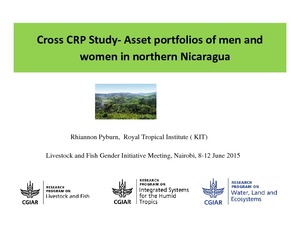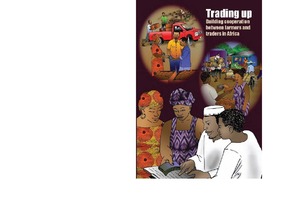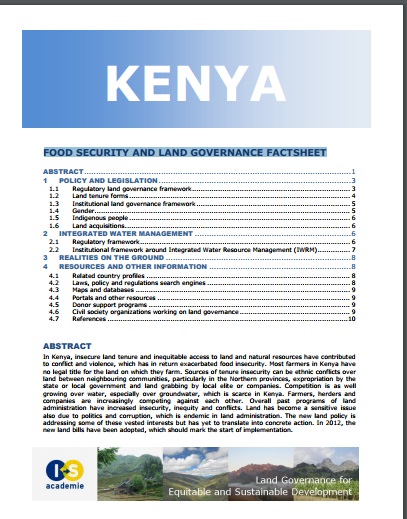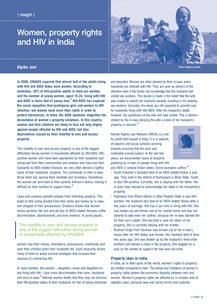Location
About KIT
KIT aims to improve health and ensure equitable social-economic development as much as promote intercultural cooperation with our partners worldwide. As we focus on results and empowering people our research, advice, training and education are creative, context specific and evidence-based. We are an innovative organisation with more than 100 years of experience all over the world. A global host in our very own international knowledge hub in Amsterdam.
Members:
Resources
Displaying 11 - 15 of 18Cross CRP Study: Asset portfolios of men and women in northern Nicaragua
Trading up: Building cooperation between farmers and traders in Africa
Written and coordinated through a ‘writeshop’ approach, this book stands up for traders – who are often treated with mistrust by smallholder farmers. It aims to improve the relationship between producers and traders, thus contributing to more sustainable value chains that provide access to markets for local producers in Africa. Full of short stories that are unique and rich in information, Trading up’s 15 richly illustrated case studies cover a wide range of countries and commodities.
Trading up: Building cooperation between farmers and traders in Africa
Written and coordinated through a ‘writeshop’ approach, this book stands up for traders – who are often treated with mistrust by smallholder farmers. It aims to improve the relationship between producers and traders, thus contributing to more sustainable value chains that provide access to markets for local producers in Africa. Full of short stories that are unique and rich in information, Trading up’s 15 richly illustrated case studies cover a wide range of countries and commodities.
Food security and land governance factsheet
In Kenya, insecure land tenure and inequitable access to land and natural resources have contributed to conflict and violence, which has in return exacerbated food insecurity. Most farmers in Kenya have no legal title for the land on which they farm. Sources of tenure insecurity can be ethnic conflicts over land between neighbouring communities, particularly in the Northern provinces, expropriation by the state or local government and land grabbing by local elite or companies. Competition is as well growing over water, especially over groundwater, which is scarce in Kenya.
Women, property rights and HIV in India
In 2006, UNAIDS reported that almost half of the adults living with HIV and AIDS today were women. According to estimates, 38% of HIV-positive adults in India are women, and the number of young women, aged 15-24, living with HIV and AIDS is twice that of young men. HIV/AIDS has exposed the social inequities that predispose girls and women to HIV infection, but women need more than rights in order to protect themselves. In India, the AIDS epidemic magnifies the devastation of women’s property violations.





